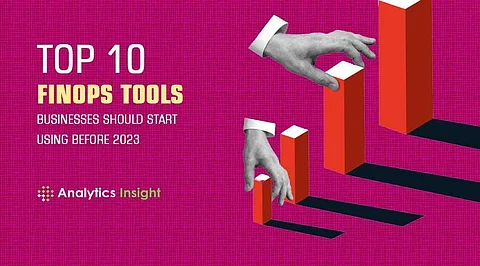

The cloud can pose serious cost management challenges for businesses. A new area called FinOps has arisen to help them control cloud costs. FinOps is a set of practices designed to address cost management concerns for all types of cloud use. FinOps tools and more traditional cloud cost management tools can serve similar purposes. Here is the list of top 10 FinOps tools Businesses should start using before 2023
ProsperOps: ProsperOps leverages AIOps, an always-working-in-the-background approach, and FinOps automation techniques to deliver results. The tool might be worth checking out if you want a FinOps tool to identify unused cloud resources that automatically manage RI and Savings Plans in one place.
Google Cloud: The Google Cloud console provides a web-based, graphical user interface that you can use to manage your Google Cloud projects and resources. It is a provider of computing resources for developing, deploying, and operating applications on the Web.
AWS Cost Explorer: Amazon Web Services introduced Cost Explorer in response to customer demand. AWS Cost Explorer relies heavily on implementing a perfect tagging strategy, which is challenging, especially in multitenant architectures, and untagged resources. It reports are tricky to understand, interpret, and link to real business activities.
Kabbage: Kabbage is one of the tools for business that focuses on getting you the capital you need when you need it. With Kabbage, you establish a working capital credit line of up to $100,000. You can use the money to buy equipment, shore up your payroll, or accomplish other business tasks. It's fast and easy to apply. There are so many new ways to stay on top of your business funding today, thanks to fintech.
CloudZero: CloudZero translates cloud cost into a language that makes sense to your FinOps stakeholders. It also makes CloudZero great at identifying wastage and optimizing costs, and proactively alerting your FinOps team about cost anomalies before they occur. FinOps teams can easily connect costs to specific events.
Microsoft Azure: Microsoft Azure, often referred to as Azure, is a cloud computing service operated by Microsoft for application management via Microsoft-managed data centers. It provides a range of cloud services, including computing, analytics, storage, and networking.
Harness: Harness's Cloud Cost Management makes it possible for finance and IT teams to track cloud spending collaboratively. Harness monitors and reports on opportunities to end unused instances on an hourly basis. Harness' Continuous Delivery Platform also offers root cost analysis to help correlate cloud events with costs.
Zenefits: Zenefits automates your processes so that you spend less time trying to make heads or tails of the situation. Not only can Zenefits handle payroll and benefits, but it also manages compliance. This tool helps you with the financial aspects of managing employees. It can also help with the regulation piece. This is just one of the tools combining the growing field of regtech with fintech.
Oracle Cloud Infrastructure: Oracle Cloud Infrastructure has all the services you need to migrate, build, and run all your IT, from existing enterprise workloads to new cloud-native applications and data platforms. It is a platform of cloud services that enables you to build and run a wide range of applications in a highly-available, consistently high-performance environment.
Densify: For customers who want FinOps tools that support multiple cloud environments, including IBM Cloud and Google Cloud, Densify is worth considering. Using ML, the tool identifies optimization opportunities, enables resource matching, and prevents overprovisioning to reduce costs. With Densify, finance and operation teams can intelligently create scaling groups and integrate FinOps workflows with DevOps pipelines to boost their efficiency.
Join our WhatsApp Channel to get the latest news, exclusives and videos on WhatsApp
_____________
Disclaimer: Analytics Insight does not provide financial advice or guidance. Also note that the cryptocurrencies mentioned/listed on the website could potentially be scams, i.e. designed to induce you to invest financial resources that may be lost forever and not be recoverable once investments are made. You are responsible for conducting your own research (DYOR) before making any investments. Read more here.
